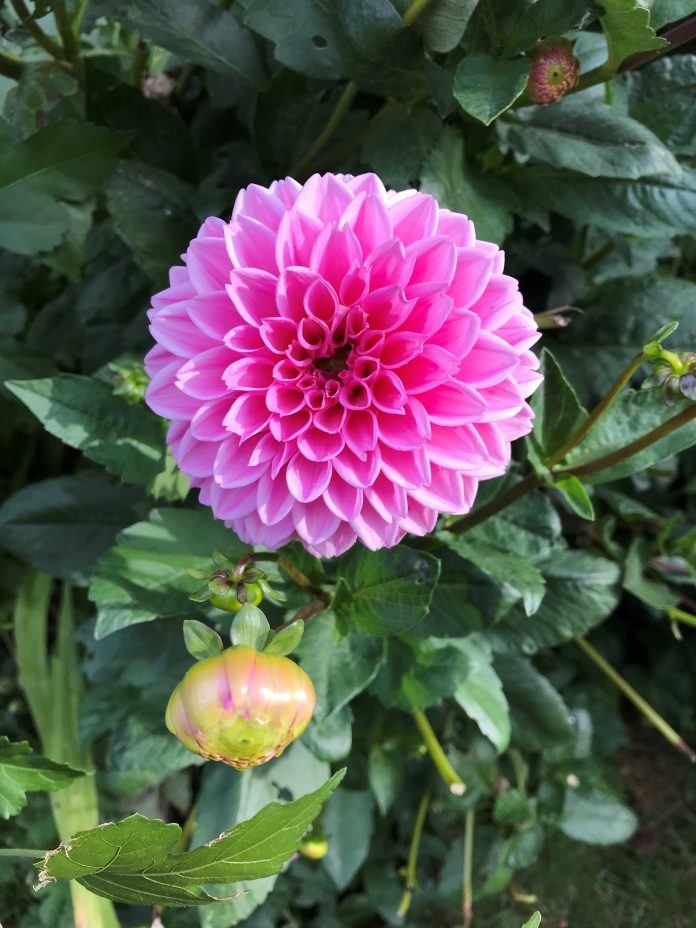Have you ever sent a birthday card to someone after their birthday? A lot of us must have or there would not be so many greeting cards on the rack that apologize for our delay.
In the garden, there are deadlines that come and go, mostly unnoticed. Like bulb planting and growing a great looking lawn. What they have in common is that both tasks require our immediate attention.
Here are our top tips for both a great looking lawn and early spring flower garden, so you can enjoy a successful spring garden season relaxed and ready.
Lawn
If you want a guarantee that your efforts will produce the best-looking lawn, lay sod. In the remaining weeks of fall, sod will put down new roots and prepare itself for a long, Canadian winter. Grass is a cold season crop, which is why we do not recommend that you lay it mid summer. It is now a bit late to start grass seed as there is not enough time for it to germinate, put down root and anchor itself for the winter. If you do spread grass seed now, some of it will no doubt survive the winter and come up next spring.
Fertilize all grass, new and established, any time now using a slow release, fall formula.
Summer Bulbs
The plants that grow from a fleshy root, like dahlias, gladiolas, tuberous begonias, and canna lilies need to be removed from their containers or the ground where they were growing all season. Shake off loose soil, wash the roots of the giant tubers with a sharp blast of water from the end of a hose and allow to dry in the sun for a few days.
Store them in a craft paper leaf bag with clean straw or shredded newspaper for the winter. Place them in the coolest, darkest part of your house, but keep them frost free until later winter (for tuberous begonias) or early spring (for all but the gladiolas) when you will bring them upstairs and start them in the warmth of your living quarters. Gladiolas get planted directly in the garden soil in May.
Holland Bulbs
There are two reasons why you should plant Holland bulbs now, for spring colour.
- There is only shipment of bulbs that arrives at your retailer. Once they are gone, they are gone. Best get yours soon.
- Some bulbs need several weeks to put down roots before the hard frost of late fall. Daffodils, narcissus, and jonquils are in the “plant now” category. Tulips, frankly, are so indestructible that you can plant them as late you want (or can, given that hard ground frost will likely prevent you from digging the ground at all by late December).
Many bulbs fall into an “in between” category that can be planted later. Hyacinths, crocus, scilla, and many of the smaller bulbs will perform well next spring planted any time between now and early November.
When you plant spring flowering bulbs be sure that the ground is well drained. None enjoy wet feet. We recommend that you dig in generous quantities of compost and play sand to open clay-based soils. Clay is nutrient-rich, but the soil particles are so dense that water cannot move through it efficiently. The results can be rotten bulbs and a no-show come spring.
We do not recommend that you add fertilizer when you plant bulbs. Nutrients are packed into each bulb, enough to get it off to a good start come spring, unlike a seed with limited nutrient resources due to its size. This is part of the miracle that makes bulb growing so much fun.
If deer, squirrels, or other vermin enjoy eating or otherwise destroying your spring flowering bulbs, we recommend that you stick with the tried and true: daffodils, narcissus, and jonquils. They are mildly toxic and have a sharp taste that most problem pests will leave alone. Of course, we cannot speak for the squirrels that have a mind of their own. Squirrels have no rules.
A great looking lawn and garden starts by meeting this important deadline. Happy Thanksgiving.
Mark Cullen is an expert gardener, author, broadcaster, tree advocate and Member of the Order of Canada. His son Ben is a fourth-generation urban gardener and graduate of University of Guelph and Dalhousie University in Halifax. Follow them at markcullen.com, @markcullengardening, and on Facebook.


